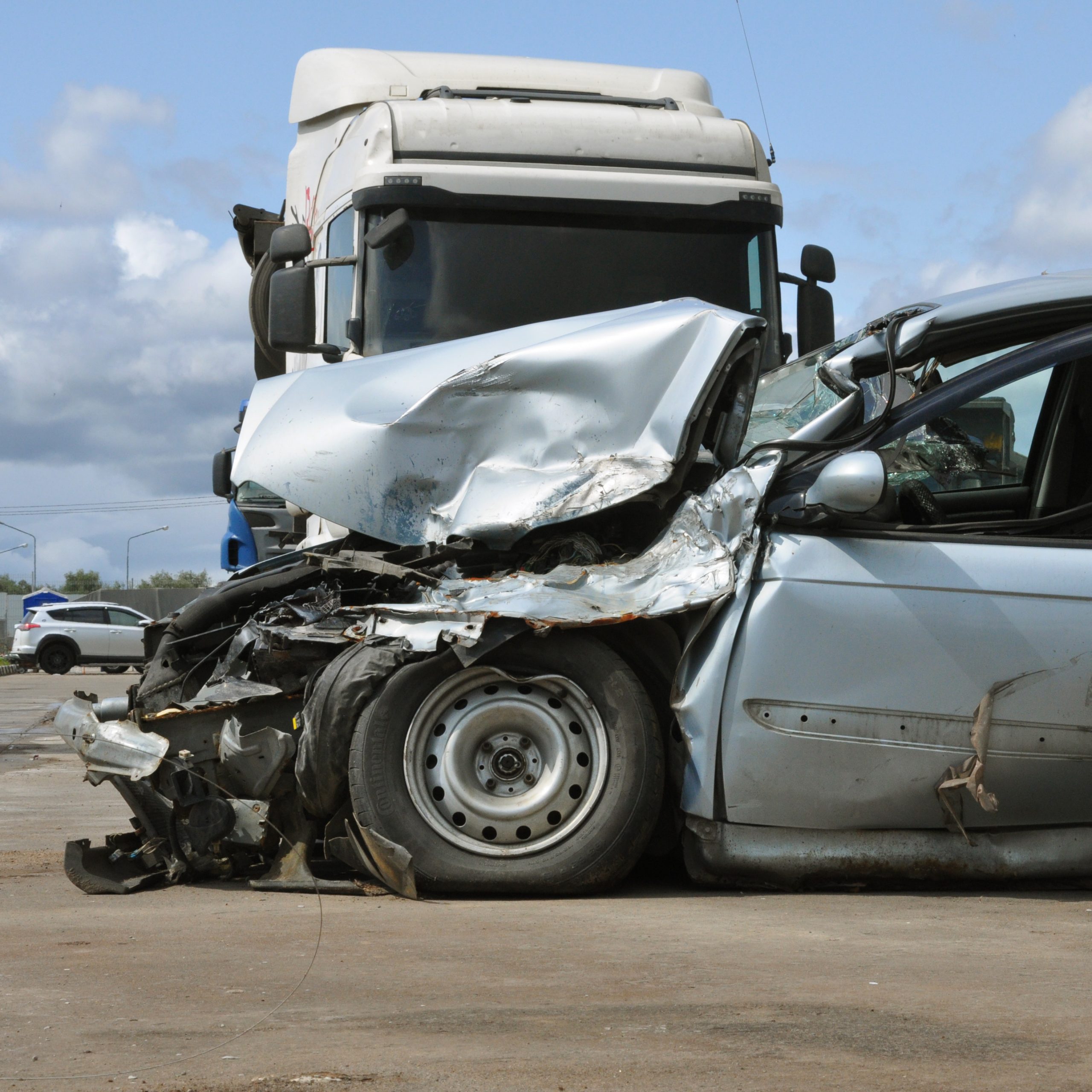Operating a commercial truck is dangerous unless basic safety rules are followed. When a person becomes a victim of a trucking accident there are often many organizations involved that can be at fault including:
- The truck driver
- The owner of the truck
- The leasor of the truck or trailer
- The logistic company that routed the truck’s delivery of goods
- The manufacturer of the truck or its components
- The road in which the accident occurred.
To evaluate truck operator and ownership responsibility, the first question is whether any laws or regulations were violated governing the trucking industry and its drivers. These laws are can be found in Title 49 of the Code of Federal Regulations or through the U.S. Department of Transportation (DOT) and the Federal Motor Carrier Safety Administration (FMCSA). Some areas that statutorily regulated drivers are:
- Use of alcohol and/or drugs.
- Poor health of the driver/failure to pass drivers’ health qualifications.
- Exceeding driver hours of service.
- Failure to keep logbooks of drive time.
- Failure to annually review the driver’s driving record.
- Inadequate/improper maintenance of the truck.
- Inadequate/improper repairs of the truck.
- Improper pre-trip inspection.
- Lack of safety inspections or routine maintenance.
- Exceed gross vehicle weight limits.
In addition, when examining the truck driver, careful consideration should be made about what training they received on safety for driving a commercial truck. Typically, truck drivers are trained to be defensive drivers. They are told to stay alert and aim high while visually scanning the road ahead of them and to both sides. Fatigue and drive inattention gravely effects what is directly in their line of sight if not trained on these rules of the road. Some other factors to consider including improper lane changes, failing to signal, dirty or poorly adjusted mirrors, failure to yield or even mechanical failures such as defective or poorly maintained brakes and tires.
Aside from the truck driver and owner/lessors, the organization that sent the truck to deliver goods can also be liable. Transportation logistic brokers have increasingly been exposed to greater civil liability through the expansion of vicarious liability for the alleged tortious conduct of their for-hire independent contractors. Logistics carrier who contract with others to carry goods for compensation, cannot delegate away its legal duty under the Motor Carrier Act to an independent contractor to safely operate vehicles on public highways. Vargas v. FMI, Inc., (2015) 233 Cal.App.4th 638. The non-delegable duties doctrine prevents a party that owes a duty to others from evading responsibility by claim to have delegated that duty to an independent contractor hired to do the work. SeaBright Ins. Co. v. US Airways, Inc. (2011) 52 Cal.4th 590, 600-601. Accordingly, if company A hires company B who hires company C to deliver goods, and company C is in an accident causing injury, all three companies can be liable for the harm caused. Public policy behind this intends to hold entities financially accountable and prevent ‘passing the buck” without taking into consideration safety of all truck drivers on the open road.
Finally, even if the truck driver or is companies is not liable, additional investigation should be made about any defect to the truck, the trailer or the roadway itself. A product may be “defective” because of a manufacturing defect, a design defect, or a warning defect. With a truck, it could involve any aspect of the vehicle including its brakes, tires, suspension, axial load, or even lights and/or reflective stickers. With roadways, there are numerous possible hazardous including,
- Steep slopes, faulty guardrails, or fixed objects close to the road
- Sight distance obstructions
- Improper signage
- Defective light or traffic control sequences
- Inadequately controlled highway or street intersection
- Uneven paved surfaces or drop offs
- Construction or maintenance work zones
- Improper traffic diversions
- Other dangerous conditions on public roadways
Careful consideration should be made concerning whether any truck unit or its components played any role in causing or contributing to the harm suffered by the victim as it is potential an additional source of recoverable compensation. The same analysis should review whether the road itself increased the risk of injury to the victim of the truck accident. If you or a loved one suffered a catastrophic injury in a truck accident, call to let our legal team analyze your facts to see what we can do to help.

